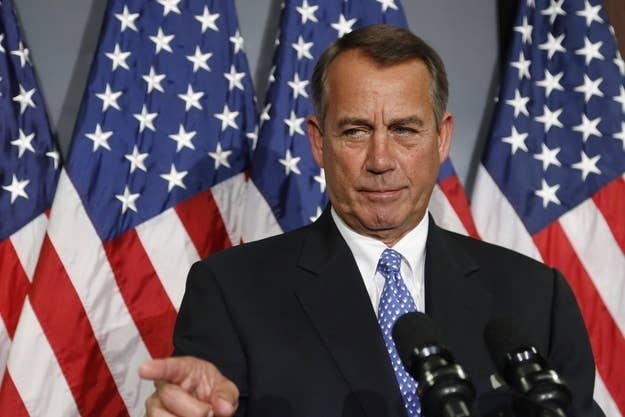
WASHINGTON — Reports of the death of outside groups have been greatly exaggerated.
Tensions between the Republican conference and conservative groups like Heritage Action and Club for Growth boiled over last week, after Speaker John Boehner publicly scolded outside groups for coming out against a budget deal before anyone had even seen it.
"Are you kidding me?" the speaker asked, incredulously.
That rebuke, and the overwhelming bipartisan vote for the budget deal, led many on Capitol Hill and in the media to believe that 2014 would usher in a new era — one in which the influence of the outside groups would be diminished.
Nancy Pelosi was "encouraged" by the speaker's remarks, if skeptical. "That could present a real sea change over there," Sen. John McCain told reporters. "I don't think there's any doubt that Speaker Boehner at times was driven by those many members of his conference and I think he made it clear in those remarks he made that's not going to be the way he operates in the future." The groups have "lost whatever credibility they had left after their defund strategy shutdown the government and blew up in everyone's face," a senior GOP aide told BuzzFeed, citing the 169 Republicans who voted for the Ryan-Murray budget deal.
But the vote for the Ryan-Murray deal was likely an anomaly, more the result of crisis fatigue and a strong desire to avoid another shutdown.
One conservative member, who did not vote for the budget, told BuzzFeed that it was unlikely Boehner's comments and the vote would make any kind of difference in the way that the conservative wing of the party voted.
"I'm doubtful that leadership is going to put anything really controversial on the floor next year, especially during the campaign season," the member said. "So there won't be a huge divide but only because there won't be much to be divided about."
Outside groups use two primary ways to shore up support among members of Congress: "key voting" certain issues and contributing financially to candidates or supporting primary challengers. They've often been a thorn in the side of leadership, as have their conservative supporters on the Hill, often blowing up plans and forcing Boehner and his deputies to pursue different tactics.
Sen. Pat Toomey, the former president of Club for Growth, defended to BuzzFeed the impact outside groups could have on members.
"I think the roles vary from group to group. Some are very different than others but the grassroots conservative movement remains a very important source of energy for the Republicans in Congress," he said.
Even Ryan — the Republican architect of the budget deal — would not trash talk the groups.
"I think these are very important elements of our conservative family," Ryan said last weekend on Meet the Press.
Boehner's frustrations, now out in the open, didn't faze folks at the Club or at Heritage Action, who promise that absolutely nothing is going to change. If anything, it only further emboldened them.
"Some of this is a decision the speaker is going to have to make," said Dan Holler, Heritage Action's communications director. "Whether he wants to operate the House with the goal of getting the most conservative legislation that passes with 218 votes or whether he wants to say to the conservatives in his conference, and by extension conservative voters that you are not part of our governing coalition and we're just going to pass things with Democrats."
Holler blamed the unusually high Republican support for the budget deal on the holidays — "everyone is getting tired."
"It's been a long 12 months for a lot of these guys going back to the fiscal cliff last year," he said. "There's going to be a recognition that this kind of deal-making isn't in their best interest and I mean that in a policy way but also from a political standpoint."
The Club for Growth isn't going anywhere, either.
"We just focus on doing what we do, which is advocating for pro-economic growth policy and I think people understand we do this in two ways: by calling balls and strikes with our scorecard and trying to elect more good guys through our PAC and we're going to continue to do that," said spokesman Barney Keller.
Republican strategist Rick Wilson said that he noticed the lobbying from outside groups and their supporters on the budget was significantly less "energized" than the defund Obamacare movement that led to the shutdown in October — an indication that the two sides could come together.
"There will not be a major backlash," Wilson said. "I think the GOP civil war is going to at least become a cold war and may become like entente cordial between Britain and France in the pre World War I era. They didn't love each other, but they recognized that the German threat was greater than that."
